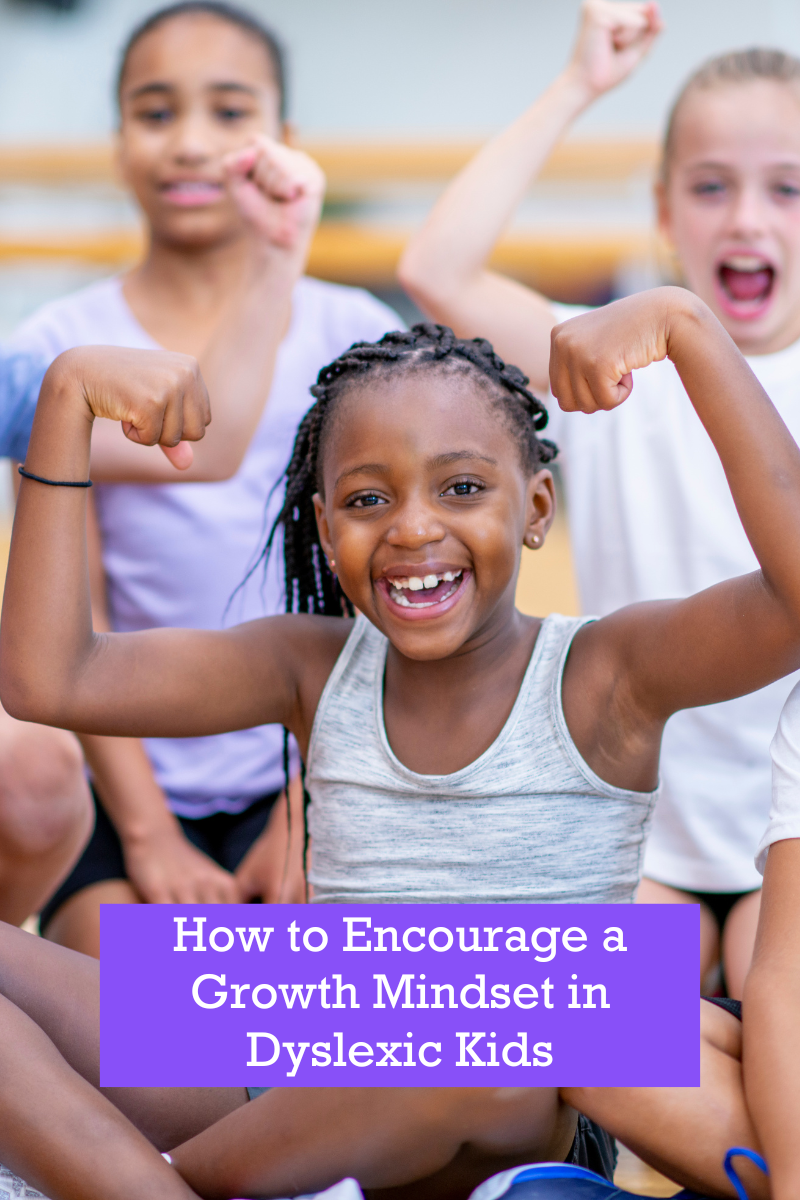We all want our children to have a can-do attitude, but how can we promote this way of thinking? Enter Growth Mindset.
The new school year offers parents and teachers of dyslexic students an opportunity to reinforce the importance of a growth mindset—a powerful tool that can transform the learning experience and unlock a child’s full potential.

Growth mindset, a term popularized by psychologist Carol Dweck, is the belief that abilities and intelligence can be developed through dedication, hard work, and a few simple strategies.
This perspective encourages students to embrace challenges, persist in the face of setbacks, and see effort – and mistakes – as a path to mastery.
According to 2018 research conducted by the Program for International Student Assessment, students with a strong growth mindset scored significantly higher across all subjects—31.5 points more in reading, 27 points more in science, and 23 points more in math—compared to those who believed their intelligence was fixed.
For children with dyslexia, reading can be particularly challenging. However, a growth mindset can help them overcome these challenges by fostering resilience and a love of learning. Here are some strategies to help your child develop a growth mindset as they head back to school:
Praise their effort rather than just the outcome. Highlight their hard work and persistence whether it’s sounding out a difficult word or finishing a reading assignment. Comments like “I’m so proud of how hard you worked on that” or “Look at how much you’ve improved because you didn’t give up” can reinforce their commitment to learning.
Negative self-talk can be a significant barrier for dyslexic students. Help your child reframe their thoughts with positive affirmations. If they say, “I can’t read this,” encourage them to say, “I can’t read this yet, but I’m working on it.” This shift in language can make a big difference in their confidence and willingness to tackle new challenges.
Set small, achievable goals, and celebrate each milestone, no matter how small. This approach not only makes the task at hand less daunting but also provides a clear path to progress. For example, set a goal to read a short paragraph independently.
Children often mimic the attitudes and behaviors of the adults around them. Share your own experiences of learning and overcoming challenges. Show them that making mistakes is a natural part of learning and growth.
When they see you embrace challenges and persist through difficulties, they are more likely to adopt a similar mindset.
Select books and stories that emphasize themes of perseverance, resilience, and growth. Characters who face challenges and overcome them can serve as powerful role models for your child. Discuss these stories and how the characters’ growth mindset helped them succeed.
Allow your child to take an active role in their learning journey. Encourage them to set their own goals, choose books that interest them, and reflect on their progress. This involvement fosters a sense of ownership and motivation, making them more invested in their reading development.
As we gear up for another exciting school year, let’s focus on fostering a growth mindset in our students. Remember to:
A growth mindset can empower learners to tackle any challenge – academic or otherwise – with confidence and enthusiasm.
At Roberts Academy at Mercer University in Macon, Georgia, our experienced faculty and staff understand the importance of a growth mindset and work hard to encourage all of our students to overcome their challenges through perseverance. Learn more about our approach here.
Discover Roberts Academy at Mercer University in Macon, Georgia!